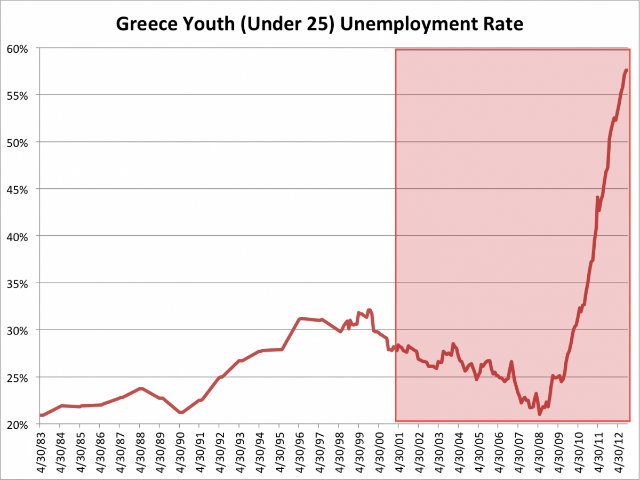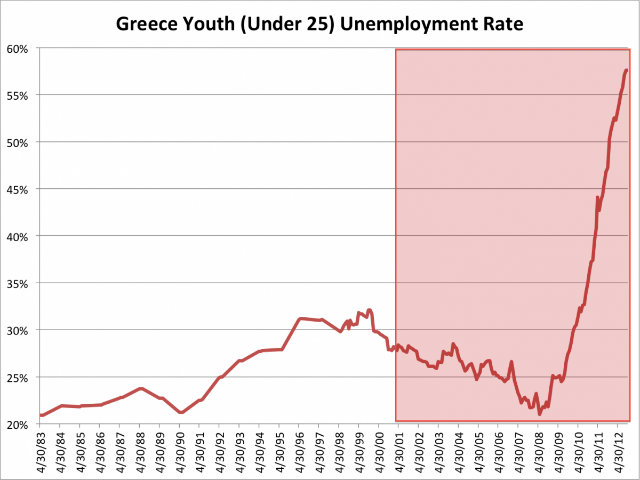 *This story appeared in the Spring 2012 print edition of Greek America Magazine and has been provided exclusively for digital publication in the Pappas Post. Greek America Magazine is published by the Greek America Foundation. To get Greek America Magazine, visit here and become a member today.
*This story appeared in the Spring 2012 print edition of Greek America Magazine and has been provided exclusively for digital publication in the Pappas Post. Greek America Magazine is published by the Greek America Foundation. To get Greek America Magazine, visit here and become a member today.
A century of oppression has nearly wiped out a religious minority group with historic ties to the region. Improved politics offer a new ray of hope. But with their numbers dwindling, Turkey’s Greek Orthodox Christians are fighting for survival.
In the spring of 2011, two young journalism students flew to Istanbul, Turkey with a mission to shed light on a pressing violation of religious freedom and human rights. One of them, Tania Karas, a Greek American and 2011 graduate of Northwestern University’s Medill School of Journalism, received a global research grant to spend three weeks documenting the daily lives and demographic strength of the country’s last Greek Orthodox Christians. She interviewed 20 community leaders, young people and government officials on the challenges of living within a community whose population is in decline.
The trip culminated in a meeting with Ecumenical Patriarch Bartholomew, spiritual leader of the world’s 250 million-plus Orthodox Christians whose Holy See has been in Istanbul for 1,700 years. Upon her return to the U.S., Tania tracked the community over the next 12 months. She found that despite marked improvement in relations between Turkey and its minorities, many challenges remain. What follow are the stories of Greek resilience and pride she discovered.
ISTANBUL’S Kadıköy Greek Primary School lies a few kilometers east of the Bosphorus Strait, on the Asian side of the ancient city. Imposing Doric pillars bolster the mint green building’s entryway, suggesting occupancy far more significant than its present student body.
Fourth-grader Valantis Mihailidis was the school’s sole student last year. The 10-year-old completed two grade levels alone, without peers to distract him in class or kick a ball with at recess. The fourth grade classroom contained just two desks, pupil and teacher. Handwritten essays tacked to the bulletin board all shared the same author.
Decades ago, Valantis’ school – and other Greek academies nearby, now closed – overflowed with children from hundreds of Greek families residing in the area. Now just a few Greeks remain. The rest were forced out by Turkish officials (or fled voluntarily, out of fear) in times of hostility between Turkey and Greece.
More than a dozen Greek Orthodox Christian churches still dot Kadıköy and its surrounding hillside neighborhoods. Though well maintained, most have no congregations and are open just a few Sundays annually.
Tucked between Kadıköy’s Turkish teahouses sits a lone block of Greek restaurants, their cheerful blue and white awnings beckoning visitors. In a place that was once a Greek stronghold, these shops are the last ones standing. Even the neighborhood’s original Greek name, Chalkedon, has been Turkified.
Yorgo Istefanopulos, chairman of Kadıköy’s small Greek community, graduated from Kadıköy Primary himself in 1962, in a class of more than 70 students. After Valantis, the school may never issue another diploma.
“Sadly this is the truth about our Greek community, not only in Kadıköy but in the entire city of Istanbul,” Istefanopulos says. “We are all getting older and there are very few young kids.”
Kadıköy is a microcosm for the fate of Istanbul’s – and greater Turkey’s – Greek Orthodox Christians. After a century of bloody pogroms, forced deportations and sanctioned discrimination by the Turkish government, uncertainty permeates their tight-knit group.
The Istanbul-based Ecumenical Patriarchate, the spiritual center of the Orthodox Christian Church globally, as well as the focal point of Turkey’s Greek Orthodox community, suffers from lack of means to train new clerics and religious leaders; the Turkish government shut down its theological school in 1971. Turkey, an Islamic state, has yet to allow its reopening.
Historically, Turkey’s Greeks have been hostages of bitter tensions between rival neighbor nations, complicating their national allegiances: Greece, a country whose citizens share their ethnic heritage and religious identity, versus Turkey, the country of their citizenship and the only homeland they have ever known.
Without urgent, comprehensive intervention, Turkey’s remaining Greek population may disappear in the next few decades. They number around 1,700 today, down from estimates around 1.8 million at the start of the 20th century – more than a 99 percent reduction over 112 years. With an average age over 65, the group is dying out. Young adults move to Greece in search of love. Schools without students must close. Sunday liturgies are sparsely attended.
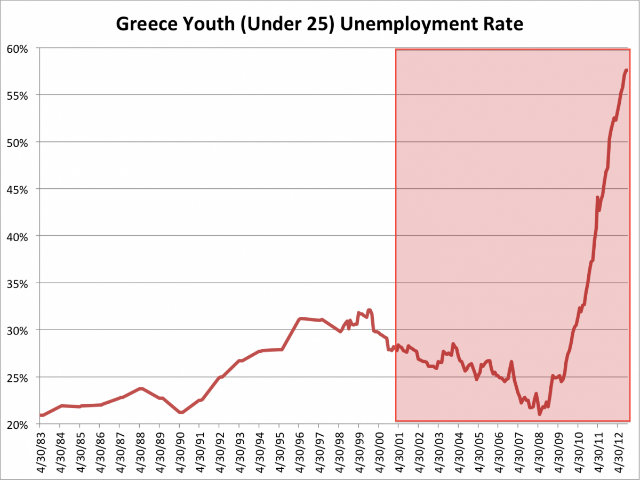
Some reforms are on the way, thanks to more than a decade of advocacy by hardworking community leaders who have demanded equal treatment and protections for Turkey’s religious minorities. Still, it may be too late. By the time their goals are achieved, there may be no Greeks left in Turkey to enjoy the fruits of their labor.
Says Istefanopulos, “We are like a species nearing extinction that we have to save.”
THE ROAD TO 1,700
It wasn’t always this way. Ethnic Greeks once thrived in the region. They have lived in what is now Turkey since antiquity, long before Alexander the Great captured Asia Minor from the Persians around 300 B.C. Anatolia, the peninsula that makes up most of modern-day Turkey, was the birthplace of such ancient Greek titans as Homer and Saint Nicholas. Scholars and philosophers like Pythagorus and Aristotle wandered Anatolia’s lands throughout their lives.
The Greeks of Asia Minor have seen the rise and fall of two empires, Byzantine and Ottoman. Today, their future is not guaranteed. Punitive government policies targeting religious minorities – such as crippling taxes on their wealth, laws making it nearly impossible for them to buy or sell property, and lack of state funding for their schools and services – have all but stamped them out, threatening to end a continuous, unbroken chapter of Greek history in the region spanning two millennia.
Despite present demographic realities, many of Turkey’s Greeks refuse to believe this is the end of the road. Instead, they press on, instilling religious and cultural traditions in the next generation without acknowledging the possibility of defeat. In an interview last spring, Valantis’ principal and teacher Hristo Pestemalcioglu swung between hope and resignation, unsure what his sole pupil’s looming graduation or transfer might mean.
“What could happen to our school next year? I don’t know,” he said. He did not know of any ethnic Greek children in the Kadıköy area other than Valantis. “If there are children they are welcome here. If there aren’t any children…we don’t know what will happen.”
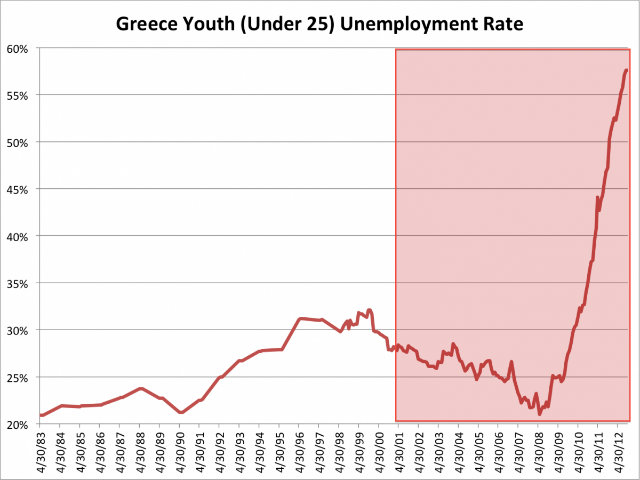
And what of the cost to ensure one boy received a traditional, Rum education? $2,300 in school operating fees per month, plus salaries for two teachers. For Pestemalcioglu and Valantis’ family, it was worth it.
Turkey’s Greek Orthodox Christians call themselves Rums (pronounced “rooms”). It comes from the word Romoi, or Romans. Their roots go back more than 2,000 years in Tin Poli, or The City. It’s shorthand for Constantinople, as the Rums, and many Greeks internationally, still refer to the former Byzantine city. The Patriarchate was established there in the fourth century. Its head, Ecumenical Patriarch Bartholomew, is the spiritual leader of more than 250 million Orthodox Christians worldwide – and de facto representative for the local, dwindling sliver of Greeks.
The modern drop in Rums’ numbers has its origins in the Greek and Armenian genocides of the early 1900s, when reformist Ottomans killed hundreds of thousands in a large-scale ethnic cleansing campaign driven by Mustafa Kemal Ataturk’s – the founder of the Turkish republic – desire to create an ethnically pure “Turkey for the Turks.” A full-fledged war broke out in Asia Minor between Greece and Turkey in 1919. Smyrna, once a majority-Greek city known for its harmony among ethnic groups, burned to the ground, smoldering for weeks. Anatolia would never be the same.
Most present-day Rums live in Istanbul or two islands in the Aegean Sea, Gökçeada and Bozcaada (formerly Imbros and Tenedos). Greeks living in those three areas were exempted from a compulsory population exchange in 1923: under terms of a peace treaty to end the Greco-Turkish War, Greece expelled half a million of its Muslims, and Turkey ousted more than 1.5 million Greek Orthodox Christians from Anatolia. Only 200,000 Rums were allowed to stay put. The Lausanne Treaty, as it was called, also gave way for the establishment of the modern Turkish state.
Three catastrophic events over the next decades caused the emptying of Rum classrooms and neighborhoods: the Turkish government-organized “September Riots” of 1955 where at least a dozen Rums were massacred and hundreds of homes, shops and churches vandalized; the forced Rum expulsions in 1964, when Greek-Turkish tensions flared over Cyprus; and the Turkish invasion of Cyprus in 1974.
Tens of thousands of Rums – especially families with young children – sought refuge in Greece with each attack on their community. They abandoned their homes and businesses. Turkish officials banned those who remained from speaking Greek in their own schools and in the streets. By the turn of the 21st century, the Rum population had declined to its current 1,700.
More recently, some Rums express hope their old enclaves will be filled again as a flourishing economy in Istanbul – and full-blown financial crisis in Greece – might re-attract those who were expelled decades ago. Rums point to a trend in unemployed Greek nationals immigrating to Istanbul to find work.
But the Greek Consulate in Turkey says their numbers are insignificant, just a handful annually. And it’s too early to tell whether immigrants from Greece will stay long-term, filling the ranks of a thinning Rum community. True reversal of their downward population spiral requires a far greater injection of new members.
A RUM REVIVAL
Perhaps no one is more confident about the Rums’ future than one man. Laki Vingas is the first non-Muslim elected to a seat in a national assembly governing minority land ownership. He’s a prominent government link for the Rums, who have traditionally been pushed to the fringe by the Turkish majority.
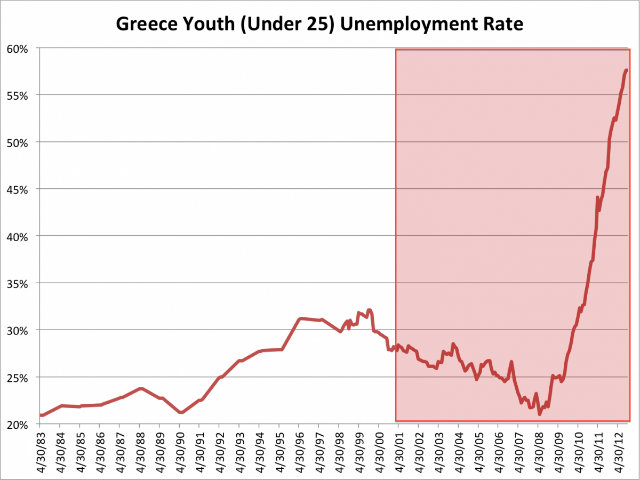
A Greek businessman who grew up in Istanbul, Vingas smiles easily and speaks with poetic conviction about a Rum revival.
“What we have is a big tree with very deep roots,” Vingas says. “But instead of letting this tree disappear with history, we have to protect it and feed it and provide new possibilities to give it new branches.”
Vingas works on behalf of minority groups to take back properties confiscated by the state, splitting his time between Istanbul and Ankara. Presently Turkey’s non-Muslim communities suffer from lack of corporate legal status. As a constitutionally secular state, Turkey does not recognize religious bodies like the Patriarchate as legal entities. This makes it hard for them to buy, maintain or transfer property – restrictions that have been a main vehicle for state control over its minorities.
By law, religious communities like Kadıköy’s are divided into “foundations,” pods of three to five revenue-sharing properties such as churches, schools and hospitals. Turkey devised the “foundation law” in 1936. It limits non-Muslims from acquiring new land and makes it easy for the state to seize their existing properties at will. Ownership and financial problems stemming from the foundation system have plagued minorities since it was implemented.
In addition to a few thousand Rums, Turkey’s population of 79 million includes 65,000 Armenian Orthodox Christians and 23,000 Jews. Though Rums are the smallest group, they hold a disproportionate share of real estate: 76 foundations compared with Armenians’ 52 and Jews’ 19. (Other religious minorities within Turkey do not fall under the foundation law.)
According to the Patriarchate, Turkish authorities have confiscated 24 additional Rum foundations, plus 990 individually owned properties, since 1936. In many cases, properties were destroyed or sold to new owners – although Rums still hold many of the original deeds, invalid in the government’s eyes. In one 2007 instance, a former Rum school in the courtyard of St. George church in Edirnekapı was taken and resold as a billiard hall.
Since he was first elected to his position in 2009, Vingas has secured the return of a handful of seized properties to their owners. He has seen drastic improvements in relations between Turkey and its minorities in his role as a liaison.
“There has been a lot of support from the state authorities to dialogue with the heads of churches, with the religious institutions, with the leaders, to have dinners together, to work together, to have meetings together, to cooperate,” he says. “We are eliminating the existing problems. We still have a list of demands, but the way we are today is comparably better than the way we were ten years ago.”
Last August, at an interfaith dinner attended by Ecumenical Patriarch Bartholomew, Prime Minister Recep Tayyip Erdogan announced that the Turkish government would give religious minorities back hundreds of properties seized by the state since 1936.
“Times that a citizen of ours would be oppressed due to his religion, ethnic origin or different way of life are over,” Erdogan said at the dinner. In addition, he said, foundations would receive compensation for properties that were confiscated and sold. So far at least one building has been given back.
LACK OF REAL CHANGE
A popular tourism slogan for Turkey declares, ‘Turkey: Where East Meets West.’ The country is situated at a geopolitical crossroad between the Western world and Middle East, though its diplomacy sights have been set on the West for the past decade. When Erdogan swept to power in 2002, his overriding goal was Turkish entry into the European Union. The result? Improvements in minority rights and free speech as Turkey aligned itself with Western ideals.
The Rums – along with Turkey’s Jews, Assyrians and Armenians – stood to benefit. Erdogan’s Muslim-inspired Justice and Development Party invoked democratic principles and promoted religious freedom to gain legitimacy in a country that, on paper, is strictly secular.
Last fall, Erdogan touted the 99 percent Muslim country as “a secular state where all religions are equal.” Such statements are a dramatic departure from the threatening, oppressive tone past administrations have taken toward the country’s religious minority communities.
But improved rhetoric has not brought legislative or constitutional guarantees of equality for non-Muslims. Annual reports by international human rights groups show Turkey is a repeat offender in stifling minority rights and free speech.
In a report released in March, the U.S. Commission on International Religious Freedom recommended the State Department designate Turkey as a “country of particular concern” because of its “systematic and egregious violations of religious freedom.”
The Patriarch is fighting back. His All-Holiness, the honorific title the faithful call him, has emerged as a world-renowned champion of human rights. In the past two decades, he has waged a high-profile political battle on behalf of Turkey’s religious minorities. With his slight build, long white beard and calm, even manner of speaking, Patriarch Bartholomew does not intimidate. But he has claimed several recent political and judicial victories.
Two years ago, the Patriarchate won a landmark ruling from the European Court of Human Rights in Strasbourg to regain rightful ownership of a boys’ orphanage. The abandoned, historically significant structure on the island of Büyükada was opened by the Patriarchate in 1902. Turkish authorities confiscated it in 1997, saying the building had no owner because they refuse to recognize the Patriarchate’s legal status.
The most monumental struggle for Rum survival has unfolded on the island of Heybeliada, home to a historic Greek Orthodox seminary overlooking the Sea of Marmara. The Theological School of Halki was a global training ground for Eastern Orthodox priests until Turkish authorities forced its closure in 1971. That year, a constitutional court ruled that all private institutions must be affiliated with a state university; as a seminary, Halki did not meet strict secularity requirements for state-run schools.
Many current Orthodox archbishops throughout the world were trained at Halki, as were all the Patriarchs in recent history. But since Turkish law also requires the Ecumenical Patriarch be a Turkish citizen, it is unclear who might lead the church after 72-year-old Bartholomew passes on.
In the past year, Erdogan has stepped up his promises to reopen Halki at the behest of U.S. President Barack Obama and Secretary of State Hillary Clinton. In late March, following a meeting with Erdogan, Obama indicated the reopening was forthcoming.
“I expressed my congratulations to the prime minister for his efforts to protect the rights of religious minorities,” Obama said in a statement. “I am very pleased to hear his decision to reopen the Halki Seminary on Heybeliada.”
Despite all of this talk, no actions have been taken. A reopening date has not been set. In general, say experts, Turkish officials are dragging their feet on numerous religious freedom issues. And in the case of a diminishing, aging minority group, if they ignore them long enough, they will disappear.
Can the Rums fight hard enough to change their fate? Dr. Elizabeth Prodromou, vice chair of the U.S. Commission on International Religious Freedom, says they are at a critical tipping point, with a small window of opportunity to bring their community back from the brink of extinction.
“The political climate is noticeably improved, and that has created the possibility for improvement in the social climate for the Rums,” she says. “The real question is, does that translate into the kind of practical changes that can reverse the precipitous decline of this community? More than anything else, time is against the sustainability of the Rum minority. And the Turkish government knows that. It’s a waiting game, and time is not on their side.”
THE NEXT GENERATION
Reminders of the Turkish upper hand are pervasive throughout Rum life. The marble bust of Mustafa Kemal Ataturk beneath spotlights greets students at the entrance of Zografyon Rum middle school. The first president of Turkey is credited as the founder of Turkish nationalism following the Ottoman Empire’s decline after World War I.
Each morning schoolchildren recite a pledge of allegiance to their country that begins, “I am a Turk.” Even in Rum schools, some lessons are in Turkish, though hallway chatter is primarily Greek. The school curriculum is controlled under the Ministry of National Education’s strict rules for secularity. Though all Zografyon’s students are Orthodox Christians, the law forbids mention of their faith in school. Like other minority schools, Zografyon does not receive government funding.
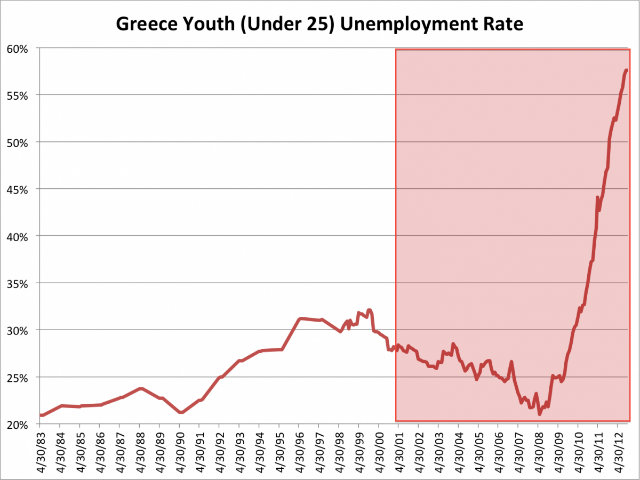
Zografyon, which counts Patriarch Bartholomew himself among its alumni, is located in Istanbul’s Beyoğlu neighborhood near Taksim Square, the heart of the city. Lessons are interrupted by the Islamic muezzin’s call to prayer five times daily. Sometimes, the bells of Agia Triada church nearby can be heard, too, ever so faintly.
On a clear sunny day, one can stand on Zografyon’s rooftop promenade and see across the Golden Horn to the famed Agia Sophia, once a Greek Orthodox church, and its neighboring Blue Mosque. The Ottoman Sultan Ahmed I erected the Muslim house of worship in 1609 to rival Agia Sophia’s grandeur.
For young Rums, these religious juxtapositions are a fact of life in Tin Poli. They are evidence of their own deep roots in these lands and the clash of civilizations their people surmounted throughout history. If not for their ancestors’ proud, resilient spirit, they would not be here.
With just 40 students spread across five floors, an eerie quiet falls over Zografyon’s halls in the five-minute breaks between classes. Enrollment is down from its peak of more than 800 in the early 1960s. “In 1962 we didn’t fit in this building,” says chemistry teacher Aristotelis Çokonas. “We added two more floors because of the overflow of students. But two years later they were not needed anymore. Everyone started leaving because of the events of 1964.”
That year, escalating tensions between Greece and Turkey over Cyprus led Turkish officials to deport all Rums with Greek citizenship. This shrank their community by another 40,000. Expelled Rums were allowed to take with them only 20 kg in personal belongings and $22 in cash. The state seized homes and businesses they left behind and froze their bank accounts.
Zografyon’s former headmaster remembers well the fear that gripped Rums in those days. The hunched, 84-year-old Dimitris Fragkoplos lives just two doors down from the school, around the corner from Istiklal Caddesi, Istanbul’s main avenue.
From his third-floor walk-up apartment, he takes the pulse of the Rum community by meticulously tracking an important measure: grammar school enrollment. His cramped office is lined with bookcases of blue three-inch binders bursting with school registration papers from the last century.
For the 2010 to 2011 year, 223 students were enrolled in seven Rum schools (this included Kadıköy Primary with its one pupil). More than a third of those children are not Greek at all. They’re Arab Antiochian Orthodox Christians, a minority within a minority, bound to their peers by a common religion ignored in academic settings. It is unclear how many Arab Christians make up the 1,700 usually cited as the number of Rums left in Turkey. Many regard themselves as Rums, fueling the demographic confusion.
Fragkoplos, who grew up on the Turkish island of Büyükada, recalls a time when Rum neighborhoods were plentiful throughout Turkey. As a boy he attended Istanbul’s prestigious Great School of the Nation, better known as Megali Tou Genous Scholi, established in 1454. The imposing, intricately designed red building overlooks the Patriarchate itself, with stunning views of the Golden Horn. When Fragkoplos was a child, hundreds of children hiked up the steep hillside daily to reach their school.
The makeup of his neighborhood transformed as friends and relatives fled to Greece in droves with each new attack on their community – in 1955, in 1964, and again in 1974. Those were years where one never spoke Greek in the streets; to wear one’s Orthodox Christian baptismal cross in public was unthinkable. And while Fragkoplos was tempted to leave as well, he decided as a young schoolteacher to stay behind and set a good example for his students.
“Through the years our numbers have been lowered slowly, slowly,” he says. “For example, when it snows you play with snowballs. The warmth of your body makes the snowball melt and melt and melt and melt. And that way we remain, just 2,000 Greeks in the city.”
THE ECUMENICAL PROTECTOR
The Rums’ foremost beacon of hope lies within a neighborhood midway up the Golden Horn. The Fener – which borrows its name from the Greek word fanari, or beacon– is home to the Patriarchate, the Eastern Orthodox Church’s center of operations.
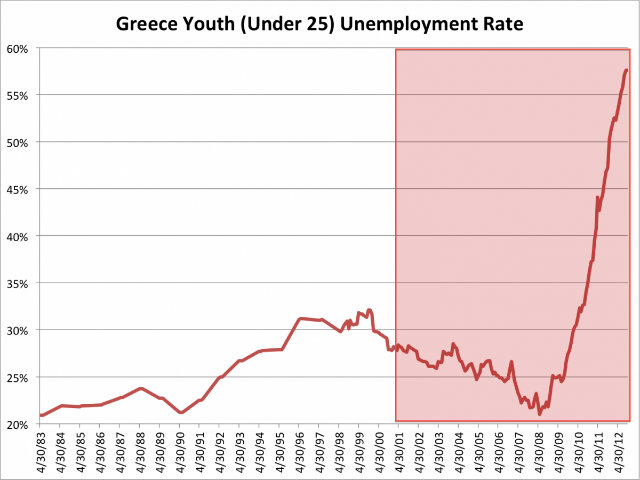
Tens of thousands from around the world make annual pilgrimages to the Patriarchate’s Church of St. George, especially around Holy Week each spring. On Easter, the nave and surrounding balconies are standing room-only.
Patriarch Bartholomew keeps a framed photo of himself speaking with President Obama beside his desk at the humble church headquarters. His mahogany desktop is buried beneath mounds of written correspondence from influential leaders spread throughout the world. In addition to leading the Eastern Orthodox Church, Patriarch Bartholomew is admired internationally as a promoter of interfaith harmony and environmental conservation.
Despite this, the strictly secular Turkish government does not recognize Patriarch Bartholomew’s ecumenical title. Instead, they only see him as the lay leader of Turkey’s tiny group of Rums. The Turkish government also retains the power to install a new Patriarch at their will. Further complicating matters, Turkish law restricts work permits for foreigners hoping to work at the Patriarchate, sometimes leaving the organization short-staffed.
The front gate of the Patriarchal compound has been bolted shut for almost 200 years as a constant reminder of the state’s heavy hand in the church’s affairs: on Easter Sunday in 1821, Patriarch Gregory V was pulled from a church service by the Ottoman Sultan Mahmut II and hung at the main gate. The gruesome killing was his punishment for failing to suppress a revolutionary uprising in neighboring Greece. The gate was bolted shut in his memory, and visitors to the Patriarchate have entered through a side door ever since.
In an interview last March, Patriarch Bartholomew chose careful words to commend the Turkish government for its improved treatment of Rums.
“In Istanbul there is a spirit of reorganization in our community,” the Patriarch said. “We live under better conditions from a political point of view. Mr. Erdogan’s government is helpful and attentive towards the minorities. We are very happy with his administration.”
In 2010, Orthodox Christians were allowed to hold their first religious service in 88 years at Sümela Monastery in northern Turkey. Stripped of its official religious status by Turkish officials in 1923, the Byzantine-era, cliffside monastery will now open for a once-yearly worship on August 15, the Dormition of the Virgin Mary feast day. The Turkish government also granted Turkish passports and dual citizenship to 17 foreign, senior Greek Orthodox clerics in 2010, widening the pool of eligible candidates to succeed Patriarch Bartholomew one day.
Though he is thankful for the improved rhetoric surrounding minority rights since Erdogan took office, Patriarch Bartholomew also says Turkey needs to change how it views the Patriarchate. He compared the centuries-old church headquarters to the Catholic Vatican, calling it a cultural asset to the country.
“Turkey should be proud to have the center of worldwide Orthodoxy on its soil,” he said. “It is a center accepted, admired, respected by many. It is a privilege for Turkey to have this institution on its soil. We are not a threat. We are not something dangerous. On the contrary, we work for peace, we work for reconciliation, we promote dialogues. We contribute to culture and civilization. How many countries would wish to have such an institution with 17 centuries of history behind it for themselves?”
In February, Patriarch Bartholomew spoke before the Turkish Parliament – a historic first – demanding guarantees of equal treatment for minorities within the new constitution now being drafted. During the closed-door meeting, he also called for recognition of the Patriarchate as a legal entity, the reopening of Halki, and an equal share of public funds for non-Muslim religious and educational organizations.
“We don’t want to be second-class citizens,” Bartholomew said to reporters after the meeting. “Unfortunately there have been injustices in the past. These are all slowly being corrected and changed. A new Turkey is being born.”
TOO LITTLE, TOO LATE
There is no question Patriarch Bartholomew has successfully leveraged his prominence on the world stage to call attention to the Rums at a critical moment. But time is running out. The community’s rapid shrinking confirms an inconvenient truth: without comprehensive intervention – and fast – their disappearance is imminent.
“Every day that passes without legal and constitutional changes that can allow for the sustainability of this community is another day lost,” says Prodromou, the religious freedom commission vice chair. The elderly average age of the Rum population and protracted delays between rhetoric and reform do not bode well for the group’s future, she says.
Beyond the Fener’s walls, there are few faithful left to attend Sunday services at Greek Orthodox churches throughout the city. Seats stamped with numbers linger from the days when local families paid to reserve prime vantage spots for church services. Today, churchgoers are surprised to find themselves in company when they attend liturgies.
Due to their lack of congregations, Turkey’s 100+ Greek Orthodox churches share fifty priests. Sometimes a priest performs several liturgies in multiple churches throughout the week, often with no one else present. This demonstrates that the churches are still in use so that Turkish officials will not label them abandoned and confiscate them.
The circumstance begs a philosophical, if-a-tree-falls-in-the-woods question: If a prayer service is held daily with never a single witness, does anybody benefit? And if icons are shined, hymnbooks dusted off, and ceiling cracks repaired for a congregation that will likely never return, is the time and energy worth it?
Of course it is, say many Rums. “It would be a treason to let them fall into disrepair,” says Yorgo Istefanopulos, the chairman of Kadıköy’s Rum foundation. He oversees five beautiful, recently renovated Rum churches, and three have no parishioners. “Those churches and buildings have been given to us, passed on to us by our ancestors, who worked hard to build them. We have a duty to our ancestors to care for them.”
Like the churches, the city’s schools are suffering the same fate. This was the case with Valantis Mihailidis, the sole student at his school in Kadıköy mentioned at the beginning of this story. In September, Valantis’ family moved him to another Rum school in Istanbul’s downtown. After two years alone, it was time for an academic setting with more children. With no students left to teach, Kadıköy Primary closed its doors for good. The soaring four-story building remains, lovely and yet empty.
As seen in Valantis’ case, the last remaining Greeks of Istanbul will fight their one-sided battle with demography to the very end, especially with regard to their children’s education. In January, the Turkish Ministry of Education announced it would permit a Greek school on the island of Gökçeada, closed in 1936, to reopen. Five families with children have said they will relocate so that the school will have pupils. It is these situations that showcase the Rums’ resilience.
Istanbul – or rather, Constantinople, and Byzantium before it – is one of the cradles of Hellenism. No matter how hard Istanbul tries to adopt a more Western, secular, or distinctly Turkish identity, the modern-day city can never be rid of its Hellenic DNA.
For many, in the Greek psyche, it is far more emotional to see the Agia Sophia cathedral in Istanbul than the Parthenon in Athens. Agia Sophia’s architectural hodgepodge of religious symbolism – Christianity meets Islam, East meets West, all beneath a grandiose dome surrounded by minarets – represents all the challenges Rums have overcome in the past two millennia.
The next few decades may stand as a bookend for a Hellenic history in the region that began with medieval Christianity, climaxed with the rise of the Byzantine empire, fell from grace with oppressive Ottoman rule, and slowed to a trickle under secular, nationalistic modern-day Turkey. Ifiyenia Miranko, a math teacher at Zografyon school, explains that despite living her entire life in a place where her religious and ethnic identity are stifled, as a Rum she will forever feel an allegiance to the city she will only ever call Constantinople.
“We were born here, we have the Patriarchate here, and we feel a connection to the city,” Miranko says. “There are so many churches, and all of them belong to us. It’s a deep heritage – our roots are embedded. Maybe I can take out my own root and go somewhere else, but the Patriarchate, the churches and history, those cannot be erased.”
It is obvious that better days are just on the horizon for the Rums. What is not so obvious is that a decade of calls for reform may have been in vain. The next generation might not be large enough to sustain itself going forward.
The Patriarchate, the fanari of Orthodox Christianity, will undoubtedly remain the one light that continues to burn if the rest of the Rum community goes dark.
One thousand, seven hundred Greeks left in a nation of 79 million. After more than two thousand years of a continuous presence and rich history, unless urgent restorative actions are taken, this may be the end.
